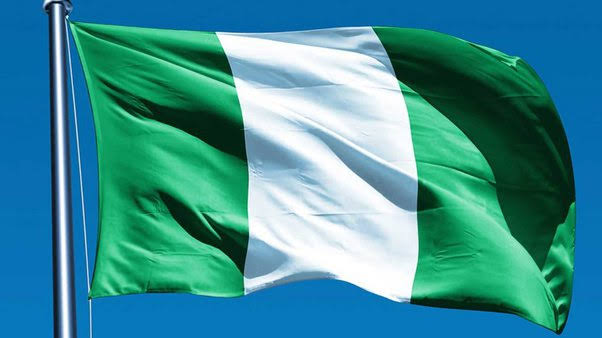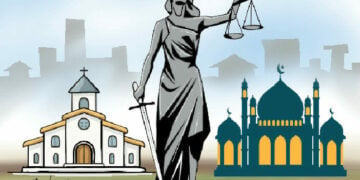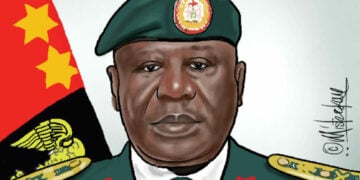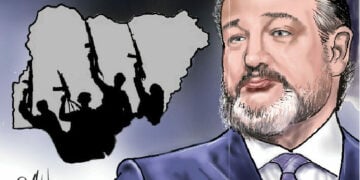Today reminds Nigerians of the day our founding fathers’ dream for independence was granted by colonial Britain. On a day like this, we are filled with the compulsion of looking back to where we are coming from in the last three scores and two years. Not only did we inhale the promise of a new dawn for a country; we became the inheritors of a new nation that was full of expectations, blessed with both human and natural resources.
The lowering of the British Union Jack flag and hoisting of Nigeria’s green-white-green flag was a poignant attestation that, at last, we have been set free from colonial domination. Despite the many challenges thrown on us, we have survived as a nation that is imperiled by challenges, but undefeated. Less than six years after the departure of our colonial masters, some army officers, on the pretext of tackling corruption, staged a mindless mutiny and cold bloodedly killed top members of the First Republic politicians and top army officers.
Among the gruesomely murdered were the Prime Minister, Sir Abubakar Tafawa Balewa, Premier of the Northern Region and Sardaunan Sokoto, Sir Ahmadu Bello, Premier of the Western Region, Chief Samuel Akintola, including top army commanders. That victims of the January 15, 1966 mutiny, known as the Nzeogwu’s coup, were majorly of the Northern origin ignited a gnawing urge for revenge. If the urge to revenge was being controlled by altruistic elements in the then tension-soaked army, the inertia by the new Head of State and Supreme Commander of the Nigerian Armed Forces, Major-General Johnson Aguiyi-Ironsi, to bring the killers of the January 1966 mutiny to book proved cataclysmic.
The eventual arrest and murder of General Aguiyi-Ironsi in Ibadan in what would later be known as counter-coup of July, 1966, opened the floodgates of crises that culminated in the civil war that lasted from July 1967 to January 1970. It must be to the credit of the then Head of State, General Yakubu Gowon, who spared no efforts in restoring the confidence of Biafrans to embrace the unity of a nation inhabited by mutually distrustful ethnic nationalities.
The restoration of democracy in October 1979 marked another watershed in an attempt to build democracy that was shattered in January 1966. If the conduct of the First Republic politicians were blameworthy, the Second Republic, headed by a teacher, Alhaji Shehu Aliyu Shagari, would prove more offensive. Not only was corruption installed as an operating system; politicians felt a sense of birthright in mismanaging the country.
To salvage what was left of the country by the Second Republic political players, Major-General Muhammadu Buhari came on board in the dying hours of December, 1984. The tall and lanky army officer, famed for his austere disposition and love for discipline, instantly captured the admiration of fellow citizens when he vowed to deal with corruption. A palace coup was staged by some army officers, and Buhari was overthrown on August 27, 1985. Then entered the gap-toothed Chief of Army Staff, General Ibrahim Badamasi Babangida, whose emergence doused the perceived high-handedness of Buhari, then accused of treading the path of a despot.
The vast infrastructural development recorded under Babangida, popularly known as IBB, including deployment of intellectuals to fashion new political and economic roadmap, proved a turning point. The obvious angst against IBB was the annulment of June 12. Nearly 30 years after the cancellation of the 1993 presidential poll that was presumably won by Chief MKO Abiola, the Niger State-born General, who foiled the February 13, 1976 coup by disarming Col Bukar Suka Dimka, has refused to tender a public apology, stressing that the annulment of the election was deliberately done in the interest of country.
In the heat of the June 12 annulment, IBB stepped aside in August 1993, and Chief Ernest Shonekan took over as the Head of the Interim National Government (ING). It was just a matter of time for General Sani Abacha, then Defence Secretary and deputy to Shonekan, to assume power. On November 17, 1993, the Shonekan-led ING was sacked and the transition programme of IBB aborted, with all elected officials sacked.
The reign of the dark-goggled General saw the haunting down of pro-democracy elements. The presumed winner of the June 12, Abiola, who had vowed to regain his mandate, was thrown into detention. Members of the National Democratic Coalition (NADECO), headed by retired Air Commodore Dan Suleiman, fled into exile.
Nigeria was then fast assuming a pariah nation, as the country was being snubbed by the international community. When eventually Abacha screamed, “enough is enough”, it was clear that he was determined to crush every opposition to his regime. He called the international community’s bluff by looking inward for survival. Realising the amount of pressure mounted on his regime to roll out a transition programme, Abacha announced what others described as the flawed emergence of five “leprous” parties.
Anger ruled the land as pro-Abacha groups were strong-minded to have their boss transformed into an elected president. Fear and crippling trepidation stalked the land, with the country sliding into silence of the graveyard. Nobody knew what to expect again. Signs that Abacha won’t cave to democratic forces appeared after he jailed the nation’s constant critic of every government and former Head of State, General Olusegun Obasanjo, and Lt-General Oladipo Diya over an alleged coup.
After the death of Abacha in June, 1998, which was soon followed by Chief Abiola in July 1998, General Abdulsalami Abubakar gathered momentum to bring to an end a transition programme that has stretched for nearly a decade. In a move to pacify the South-west over the death of Abiola, Obasanjo, as it was after the assassination of General Murtala, emerged an elected president.
In 2005, a year to the end of his second and final term, Obasanjo’s bid for tenure elongation was opposed by his deputy, Atiku Abubakar, and supported by top retired military red necks and pro-democracy groups. Nigerians stood against the Ota Farmer’s greed to hold onto power beyond the legal two-term limit as provided for by the Nigerian Constitution.
In anger, Obasanjo turned himself into a bull in a China shop by drafting sick Governor Umaru Musa Yar’Adua to become his successor. Anything outside of Obasanjo, Nigerians reasoned, was better than the Ota Farmer. Yar’Adua would suffer serious health conditions, as he spent more time abroad than at home for medicals. Some presidential officials even declared that there was nothing unconstitutional in Yar’Adua ruling from abroad. Then, came the Doctrine of Necessity passed by the National Assembly that was soon trailed by the death of Yar’Adua, leading to the emergence of Dr Goodluck Jonathan-led presidency. Against opposition by the North, Jonathan, who is of the South-south extraction, got re-elected in 2011.
When in 2015, he attempted to secure a re-election against an earlier agreement with his Northern backers that he would rule for only one term, increasing spates of insecurity proved an albatross. He would quickly throw in the towel after initial results of the presidential poll showed that his major opponent and the All Progressives Congress (APC) presidential candidate, General Muhammadu Buhari, was coasting home to victory.
His decision to concede, he would explain, was to save the nation from any bloodshed in the event the APC was defeated. Over seven years of Buhari in power has seen the country tumbling from top to bottom. His electoral promise to deal with insecurity, corruption and improve the economy has become a mirage. The APC-led government has admitted Nigeria into the club of the ‘World’s Most Indebted Nations’. The country is heavily indebted to the extent that citizens are wondering if Buhari’s major pre-occupation is to plunge the country into a bottomless pit of debts.
As Nigeria celebrates its 62nd independence anniversary today, hundreds of kidnapped citizens are still unwilling guests of criminal groups. The present tragedy lies in the government’s inability to rescue victims of brigandage and other non-state actors engaged in violence against peace-loving citizens. If bandits can organise rescue operations for their members in prisons, Nigerians are wondering why security forces are incapable of rising up to the task of smoking these criminals from their holes and bringing them to justice.
Corruption has grown wings and is heavily protected. The seventh-month old strike action by the Academic Staff Union of Universities (ASUU), and the incapacity of national leadership to resolve the quagmire drill a hole in the willingness of political leaders to resolve the problem of tertiary education.
As Nigerians observe today in solemnity, citizens must embark on a reflection that addresses inequalities and injustices that have pervaded our country. We need a national leadership that combines the passion of the Sardaunan Sokoto; the humility of Prime Minister Balewa; the intellectual insight of Chief Obafemi Awolowo; the cosmopolitan nature of Dr Nnamdi Azikiwe; the statecraft of IBB and ruthlessness of General Abacha against enemies of Nigeria, both within and without. Nigerian citizens under a democracy must not be deluded into believing that political leadership must be feared and not challenged.





